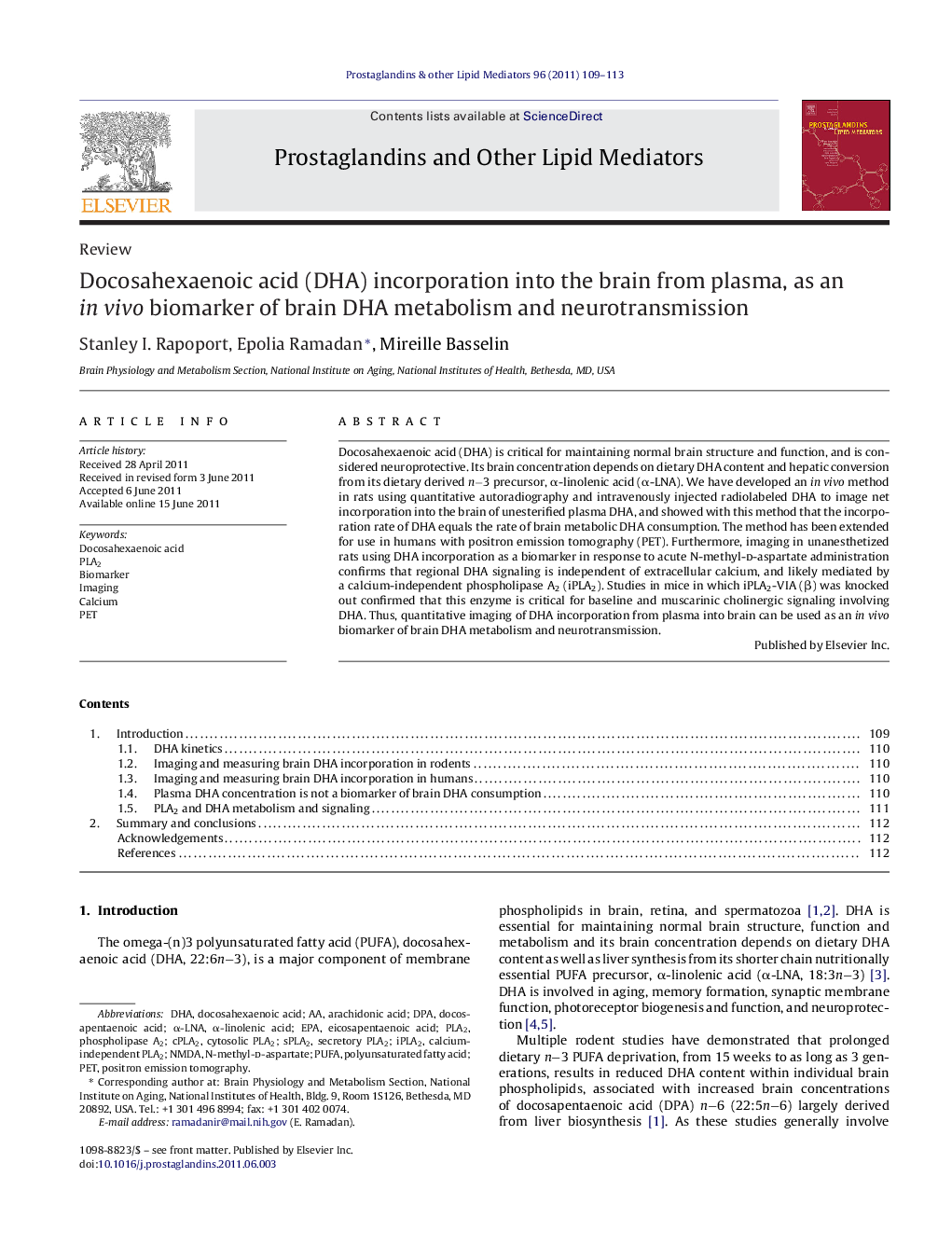| کد مقاله | کد نشریه | سال انتشار | مقاله انگلیسی | نسخه تمام متن |
|---|---|---|---|---|
| 2019708 | 1542229 | 2011 | 5 صفحه PDF | دانلود رایگان |

Docosahexaenoic acid (DHA) is critical for maintaining normal brain structure and function, and is considered neuroprotective. Its brain concentration depends on dietary DHA content and hepatic conversion from its dietary derived n−3 precursor, α-linolenic acid (α-LNA). We have developed an in vivo method in rats using quantitative autoradiography and intravenously injected radiolabeled DHA to image net incorporation into the brain of unesterified plasma DHA, and showed with this method that the incorporation rate of DHA equals the rate of brain metabolic DHA consumption. The method has been extended for use in humans with positron emission tomography (PET). Furthermore, imaging in unanesthetized rats using DHA incorporation as a biomarker in response to acute N-methyl-d-aspartate administration confirms that regional DHA signaling is independent of extracellular calcium, and likely mediated by a calcium-independent phospholipase A2 (iPLA2). Studies in mice in which iPLA2-VIA (β) was knocked out confirmed that this enzyme is critical for baseline and muscarinic cholinergic signaling involving DHA. Thus, quantitative imaging of DHA incorporation from plasma into brain can be used as an in vivo biomarker of brain DHA metabolism and neurotransmission.
► In vivo brain imaging of DHA incorporation as a biomarker of brain DHA metabolism.
► Brain DHA did not follow plasma DHA.
► Tool to test the efficacy of DHA supplementation/deprivation.
► Tool to identify role of DHA in signal transduction.
Journal: Prostaglandins & Other Lipid Mediators - Volume 96, Issues 1–4, November 2011, Pages 109–113